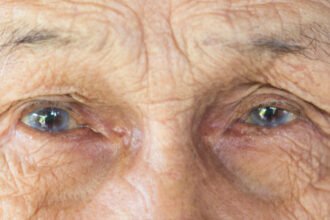The healthcare landscape is shifting toward individualized approaches that prioritize patients’ unique needs. Personalized care is becoming a hallmark of patient-centered strategies, transforming traditional healthcare models.
By focusing on tailored treatments and support, healthcare providers are bridging gaps in care, enhancing patient satisfaction, and driving better outcomes. This article explores the impact of personalized care and technology in meeting patients’ evolving needs.
What is personalized care, and why does it matter?
Personalized care focuses on meeting each patient’s specific needs and preferences. Unlike one-size-fits-all solutions, customized care adapts to individuals, considering their medical history, lifestyle, and unique challenges. This approach improves engagement, empowering patients to participate actively in their health journey while fostering trust between patients and providers.
Research supports the effectiveness of personalized care. One study found that patients who receive tailored care are likelier to follow treatment plans, leading to better outcomes. This individualized approach addresses immediate health concerns and contributes to long-term wellness. In a time when chronic diseases and complex conditions are rising, personalized care offers a proactive way to tackle these challenges effectively.
The Role of Technology in Advancing Personalized Care
Technological advancements have made personalized care more accessible and efficient. Tools like electronic health records (EHRs), wearable devices, and AI-powered analytics provide healthcare providers with actionable insights, enabling them to deliver precise and responsive care.
Enhancing patient monitoring and feedback
Wearable devices and remote monitoring tools allow real-time tracking of patient health metrics. For instance, devices that monitor blood pressure, glucose levels, or oxygen saturation enable proactive care, reducing the risk of complications. These tools also empower patients to play an active role in their care by providing instant feedback and facilitating better communication with healthcare teams.
Leveraging AI for precision medicine
Artificial intelligence helps identify patterns and recommend treatments tailored to individual patients. AI algorithms analyze vast datasets to predict outcomes, suggest personalized treatment options, and optimize care plans.
One study concludes that AI-driven care models could significantly reduce healthcare costs while improving care quality. This technology enables healthcare providers to anticipate patient needs and act quickly, enhancing the overall care experience.
How Specialized Services Bridge Care Gaps
Specialized services are critical in delivering personalized care, especially for patients recovering from surgeries or living with chronic conditions. Agencies providing private duty nursing are at the forefront of this effort, offering dedicated one-on-one support that ensures continuity and quality of care. For example, a private duty nursing agency provides services tailored to individual patients, enabling seamless transitions from hospital to home.
Personalized support for chronic conditions
Patients with chronic illnesses often need consistent, tailored care to manage their conditions effectively. Private nurses provide ongoing monitoring, administer medication, and educate patients and families about managing symptoms and avoiding complications. This support improves health outcomes and reduces patients’ and their families’ emotional and physical stress.
Easing recovery after surgery
Post-surgical recovery can be challenging without proper support and guidance. Private nurses assist patients in managing pain, adhering to rehabilitation protocols, and adapting to home care routines. This one-on-one support minimizes the risk of complications, accelerates recovery, and reduces the likelihood of hospital readmissions, creating a smoother healing journey for patients.
Patient-Centered Approaches in Personalized Care
Personalized care goes beyond medical treatments to emphasize patient preferences, emotional well-being, and overall satisfaction. By incorporating patient input and addressing social determinants of health, healthcare providers build trust and create a supportive environment that fosters better outcomes.
Empowering patients through communication
Clear and compassionate communication ensures patients understand their conditions and treatment plans. A patient-centered approach involves discussing options, listening to concerns, and respecting their choices. Research published in the Patient Experience Journal highlights that effective communication improves health outcomes as patients feel more involved in their care.
Addressing social determinants of health
Social determinants such as housing, education, and income significantly influence health outcomes. Personalized care considers these factors by connecting patients with resources that address barriers to health, such as transportation, mental health services, or nutritional support. This holistic approach improves not only individual outcomes but also community health.
Challenges and Opportunities in Expanding Personalized Care
While personalized care offers many benefits, its widespread adoption remains challenging. Limited resources, provider training, and access to technology can hinder its implementation. However, these also present opportunities for innovation and collaboration within the healthcare sector.
The promise of telehealth
Telehealth has expanded access to personalized care, particularly in rural or underserved areas. Virtual consultations, remote monitoring, and online support services enable patients to receive high-quality care without geographic barriers. Telehealth is especially beneficial for patients managing chronic conditions, as it allows ongoing engagement with their care teams.
Collaborative care models
Team-based approaches involving doctors, nurses, social workers, and other professionals ensure comprehensive patient support. Collaborative care models enhance the ability to deliver individualized services efficiently, combining diverse expertise to meet each patient’s complex needs.
Building a Future With Personalized Care
The future of healthcare lies in creating systems that prioritize personalized care. By tailoring treatments and support to each patient’s needs, providers can improve satisfaction, enhance health outcomes, and reduce disparities in access to care. Technology, specialized services, and patient-centered approaches are pivotal in bridging gaps and delivering care that truly meets the needs of diverse populations.
With the ongoing commitment of providers and agencies, such as those offering private duty nursing, personalized care continues transforming how healthcare is delivered. Whether supporting chronic disease management, facilitating post-surgical recovery, or addressing social determinants of health, these innovations underscore the importance of placing patients at the center of care. By investing in personalized approaches, the healthcare industry can foster a future where every patient receives the care they deserve.









